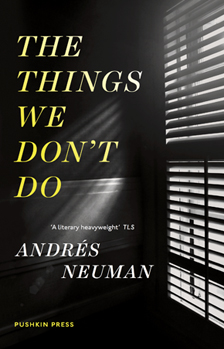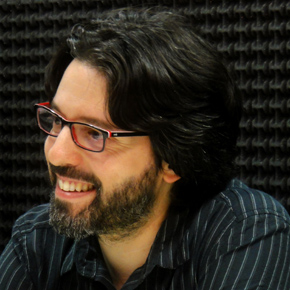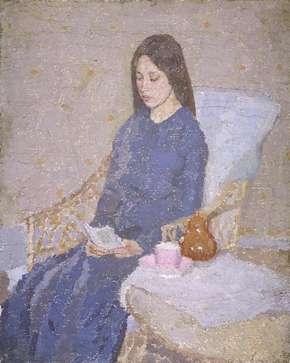A mother ago
by Andrés NeumanI entered the hospital filled with hatred and wanting to give thanks. How fragile is anger. We could shout, hit or spit at a stranger. The same person whom, depending on their verdict, depending on whether they tell us what we are desperate to hear, we would suddenly admire, embrace, swear loyalty to. And that love would be a sincere one.
I went in not thinking anything, thinking about not thinking. I knew my mother’s present, my future, depended on the toss of a coin. And that that coin wasn’t in my hands, perhaps it was in nobody’s, not even those of the doctor. I have always thought that the absence of god relieves us of an intolerable burden. Yet more than once, when going in or out of a hospital, I have longed for divine mercy. Multitudinous, full of seats, corridors, hierarchies and rituals of hope, silent on their upper floors, hospitals are the closest thing to a cathedral we unbelievers can step into.
I went in trying to avoid this line of reasoning, because I feared I would end up praying like a hypocrite. I offered my arm to my mother, who had so often given me hers when the world was very big and my legs very short. Is it possible to shrink overnight? Can someone’s body turn into a sponge which, impregnated with fears, gains in density while losing volume? My mother seemed smaller, thinner, and yet more weighed down than before, as though prone on the floor. Her porous hand closed around mine. I imagined a little boy in a bathtub, naked, expectant, clutching a sponge. And I wanted to say something to my mother, and I didn’t know how to speak.
The proximity of death squeezes us in such a way that we might be capable of losing our convictions, of letting them ooze out like a liquid. Is that necessarily a weakness? Perhaps it is a final strength: to arrive somewhere we never expected to arrive. Death multiplies our attention. It wakes us twice. The first night I spent with my mother when they admitted her to hospital, or when she admitted herself to an area within herself, I confirmed a suspicion: some kinds of love cannot be requited. However much a child recompenses his parents, there will always remain a debt, shivering with cold. I have heard it said, I have said it myself, that no one asks to be born. But being born through another’s will is more of a commitment: someone has given us a gift. A gift which, as is customary, we didn’t ask for. The only coherent way of refusing it would be to kill oneself on the spot, without a word of complaint. And no one accompanying their stumbling mother, their shrunken mother to the hospital, would think of taking their own life. The life she gave them.
I knew my mother’s present, my future, depended on the toss of a coin. And that that coin wasn’t in my hands, perhaps it was in nobody’s, not even those of the doctor.”
What was my mother’s illness? It doesn’t matter. It is the least important thing. It is out of focus. An illness that made her walk like a little girl, draw closer step by step to the ungainly creature she had been at the beginning of time. She confused the name and functions of her fingers as in an indecipherable game. She mixed up her words. She couldn’t walk straight. She bent over like a tree that mistrusts its branches.
We entered the hospital, we never finished going into it, the threshold was another country, a border within a border, and we were coming into the hospital, and someone tossed a coin, and the coin dropped. It is so basic that your reason loses the thread. An illness has its stages, its precedents, its causes. The drop of a coin, however, has no history or nuances. It is an event that burns itself out, that determines itself. Memory can suspend the coin, slow its ascent, recreate the tiny waverings during its trajectory. But those ruses are only possible after it has dropped. The original movement, the coin’s flight, belongs in an absolute present. And no one, I know that now, is capable of speculating while they watch a coin drop.
 The sponge, she said, the sponge a bit higher, my mother said, sitting in the bathtub in her room. Higher, yes, the sponge, she urged me, and I was struck by the effort she had had to make to utter that simple phrase. And I rubbed her back with the sponge, drew circles on her shoulders, ran over her shoulder blades, slid down her spine, and before I finished I traced on her wet skin the words I hadn’t been able to say to her until now, when we crossed the border together.
The sponge, she said, the sponge a bit higher, my mother said, sitting in the bathtub in her room. Higher, yes, the sponge, she urged me, and I was struck by the effort she had had to make to utter that simple phrase. And I rubbed her back with the sponge, drew circles on her shoulders, ran over her shoulder blades, slid down her spine, and before I finished I traced on her wet skin the words I hadn’t been able to say to her until now, when we crossed the border together.
From The Things We Don’t Do, translated by Nick Caistor and Lorenza Garcia.
 Andrés Neuman was born in 1977 in Argentina, and grew up and now lives in Spain. He has published numerous novels, short stories, essays and poetry collections and was selected as one of Granta’s Best of Young Spanish-Language Novelists and included on the Bogotá 39 list of outstanding new Latin American authors. His first novel to be translated into English, Traveller of the Century, was awarded the Alfaguara Prize and the National Critics Prize, and shortlisted for the 2013 Independent Foreign Fiction Prize. His second novel, Talking to Ourselves, was published in February 2014 and his first story collection in English, The Things We Don’t Do, is now published by Pushkin Press. Read more.
Andrés Neuman was born in 1977 in Argentina, and grew up and now lives in Spain. He has published numerous novels, short stories, essays and poetry collections and was selected as one of Granta’s Best of Young Spanish-Language Novelists and included on the Bogotá 39 list of outstanding new Latin American authors. His first novel to be translated into English, Traveller of the Century, was awarded the Alfaguara Prize and the National Critics Prize, and shortlisted for the 2013 Independent Foreign Fiction Prize. His second novel, Talking to Ourselves, was published in February 2014 and his first story collection in English, The Things We Don’t Do, is now published by Pushkin Press. Read more.
andresneuman.com
Nick Caistor has translated over forty books from Spanish and Portuguese, including works by José Saramago and Manuel Vázquez Montalbán. Lorenza Garcia has translated over a dozen novels and works of non-fiction from French and Spanish. They also worked together on the translations of Andrés Neuman’s two novels for Pushkin Press.
Author portrait © Magdalena Siedlecki
Also by Andrés Neuman:
On destiny
In living memory


